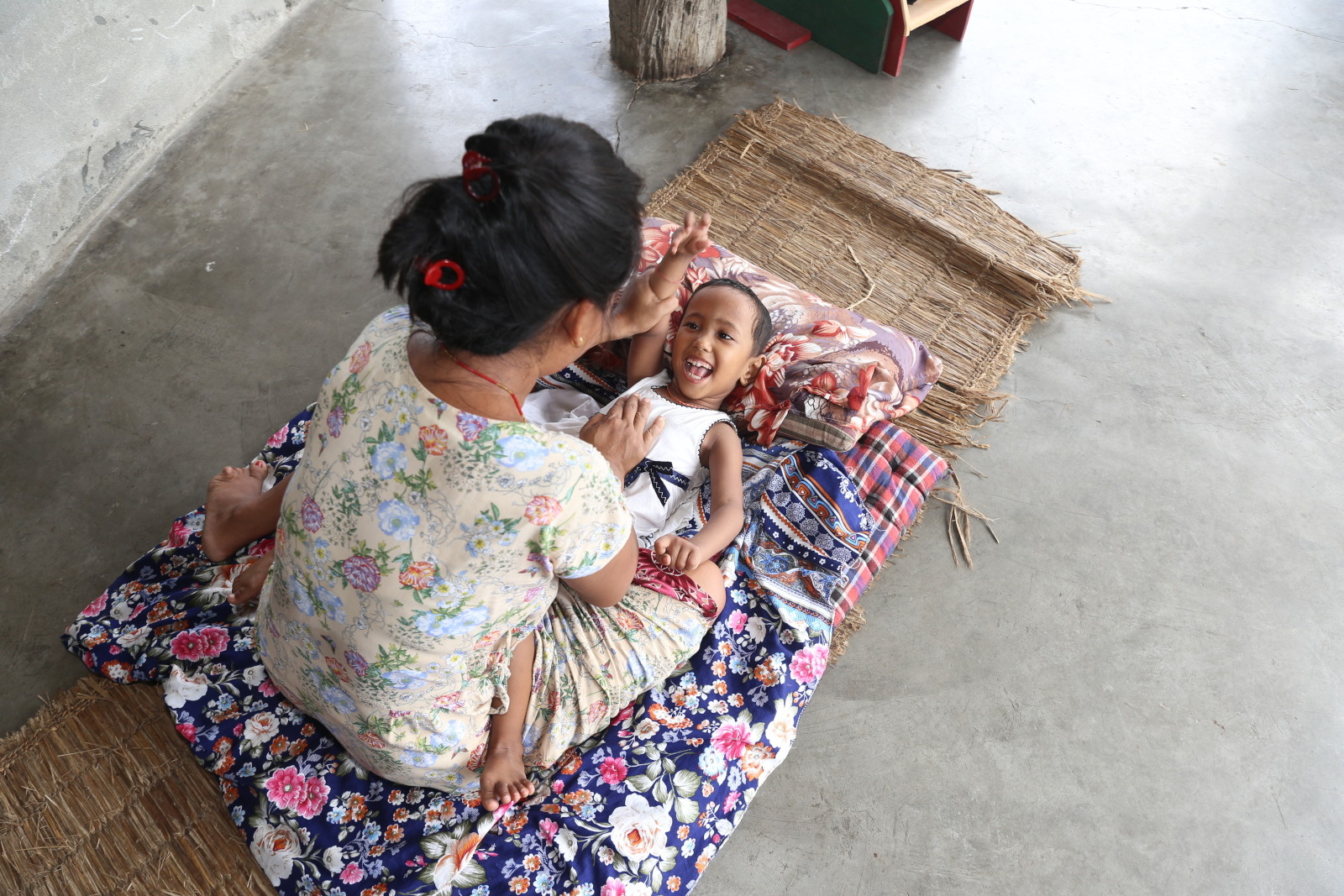Priti, 6, lives in Biratnagar, Nepal. After her mother experienced labor complications, Priti was born with cerebral palsy. Priti and her family met Humanity & Inclusion’s local partners two years ago and have been receiving support ever since. They tell us about their journey, their progress and their hopes for the future.
Priti lives with her mother Uma, her paternal grandparents and her twin brother. Her father, Deepak, works in Qatar to support his family and only visits every two years.
When the twins were born, Priti’s twin brother came into the world first. Complications set in with Priti, who remained stuck for 25 minutes. Those minutes were life-changing. She ran out of oxygen, causing irreversible damage to her brain.
"At the time, we had no idea how the situation would develop,” Uma explains. “The doctor didn't tell us anything. It was only after 8 months, when her brother started to crawl and roll over, that we noticed something was wrong. She slept all the time, she couldn't move and her hands made strange movements.”
As the weeks went by, Priti's family began to understand the consequences of the oxygen deprivation at birth. The little girl had no control over her limbs and was unable to speak. She was completely dependent on her family for everything: feeding, drinking, bathing, sitting.
With time, she has developed ways of communicating with her family and today she is able to make her basic needs understood through looks, gestures and sounds.
Holistic rehabilitation care
Two years ago, thanks to local outreach teams, Priti's family discovered the rehabilitation center supported by Humanity & Inclusion in Biratnagar.
The center is in the nearest town, an hour’s drive from their home. The journey isn't easy as the roads are poor and transporting Priti is complicated. But her family is determined; they won't give up. They’ll do whatever it takes to improve their daughter’s existence.
When they first took Priti to the center, they met with the team of physical therapists and discovered what it could offer them: a specially adapted chair, support in obtaining financial aid from the local government and long-term physical therapy to improve Priti’s quality of life.
Since then, they visit the center once a month to be shown new exercises by Rinki, the physical therapist who has been working with Priti from the start. Then, every day, her mother helps Priti do these exercises at home.
"It's a challenge, both for Priti and for me, but I want to keep doing it for my daughter's sake,” Uma explains. “Progress is variable; it takes time. But I’m happy with the way things are going.”

Rinki also provides tele-rehabilitation sessions. Priti's mother contacts her by video-call and they do the exercises together from a distance. These remote sessions mean that the family doesn’t have to travel all the way to the center for the slightest issue and Priti benefits from in-depth and regular support.
“The results show clear progress; every part of her body is gradually becoming less rigid,” explains Rinki. “For example, before she couldn't open her hands. They were completely curled in on themselves. Now her hand opens and closes much more easily. What's more, thanks to the chair specially designed for children with cerebral palsy, Priti can now sit up and take hold of objects in front of her. These exercises are essential for her development and well-being. Every morning, Priti's mom puts her in this chair for 30 minutes and helps her do exercises.”
Priti’s favorite time of the day is when her brother comes home from school. She crawls to him and stays beside him while he does his homework. Her brother is very close to Priti and loves it when she keeps him company while he studies.
“It's like she wants to learn what he’s learning at school; she tries to see what he’s doing,” Uma says. “If we move her away from him, she throws a tantrum.”
Accessibility challenges in Nepal
The road ahead is long and will be far from easy, especially in Nepal. Priti's parents are worried. They know that she will never be autonomous because Nepal lacks accessible infrastructure—adapted schools, high-tech electric wheelchairs, etc.
"There is a school in Kathmandu that provides rehabilitation and education to children with cerebral palsy,” Uma adds. “I hope that one day there’ll be a school like that here in Biratnagar. It would allow Priti to go to school and have even more rehabilitation exercises—and it would allow me to go back to work.”
In Nepal, through five partner-run rehabilitation centers, HI is working to assist as many people with disabilities as possible—people like Priti. Local teams are working toward a more equitable and inclusive society where every human being can find their place and be treated with dignity.





